News
Meethotamulla dump tragedy paves way for city waste reduction
View(s):By Dilushi Wijesinghe
The daily collection of solid waste in the city of Colombo has dropped by about 46% in the five years to 2023, the Colombo Municipal Council (CMC) says.
Asking households to separate their waste has helped.
Still, the reduction is not at a satisfactory level, the council says.
Five years since the collapse of the Meethotamulla garbage dump on April 14, 2017, which killed 32 innocents and destroyed 60 houses, solid waste collection has dropped.
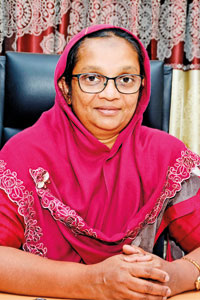
Shahina Mysan: The CMC's Solid Waste Management Director
In 2017, the CMC collected around 750 metric tonnes a day, but as of 2023, it has been reduced to 400 MT, said Shahina Mysan, Director of Solid Waste Management at the CMC.
“We used this situation (the Meethotamulla incident) to start segregation,” Ms. Mysan said. “At first, people were not cooperative, but we raised awareness to prevent another situation from happening,” she said. A leaflet provided guidance on the separation of organic, non-recyclable and recyclable waste.
Referring to the waste-to-power plant run by the Western Power Company, a subsidiary of Aitken Space PLC, Ms. Mysand said, “Even though we use the plant, we collect solid waste separately because the plant can break down at any moment,” Ms. Mysan said.
She says recruitment was not done due to the coronavirus pandemic and economic crises. Labourers, drivers and vehicles are not enough. “Engineers are migrating too,” she complained. “Resources are limited, but we are making the most of them.’’
She advised the people who are not able to hand over waste to the dump trucks when they call over to contact the district engineer. “If they are residing in a flat, and upon popular demand, we can arrange to send a truck in the night, as we do on Galle Road, but the request has to come from the residents,” she said.
The CMC encourages homes to segregate waste through some initiatives.
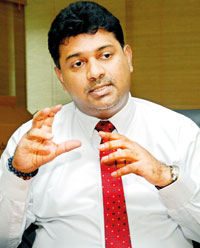
CEA Director General Hemantha Jayasinghe
“We conduct ‘waste markets’ or ‘kasala pola’ to encourage people to segregate their waste. We have also provided two e-waste containers in Colombo,” she said. “Support the CMC by segregating and reducing your waste. Use a separate bin for polythene and plastic.”
Meanwhile, the Central Environmental Authority (CEA) is implementing measures to reduce, reuse and recycle plastic and polythene. CEA Director General Hemantha Jayasinghe said a new method called an ‘extended producer responsibility (EPR)’ is to be introduced to encourage people to reuse plastic (PET) bottles. The system involves a specific amount (yet undecided), which will be mentioned on the neck of the bottle. The consumer may return the bottle to the manufacturer after use, and receive the amount mentioned on the bottle, he explained.
The system works on a deposit-return system.
“We will begin this process with PET bottles, and we hope to implement it in other areas such as e-waste,” Mr. Jayasinghe said. “After the amendment of the Environment Act, which is in its final stage, legal action can be taken against those who do not comply with the law.’’
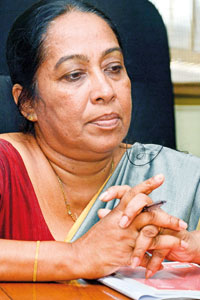
CEA Assistant Director Nadeeka Niroshani
Mr. Jayasinghe said the response from PET bottle manufacturers regarding the new system has been disappointing so far, as they have not complied with the proposed EPR system. “Through the EPR system, we aim to hold the manufacturer accountable from manufacturing or importing to its final disposal. The consumer alone should not be held responsible for disposing of the bottles. Both the consumer and the manufacturer hold equal responsibility,” said Mr. Jayasinghe.
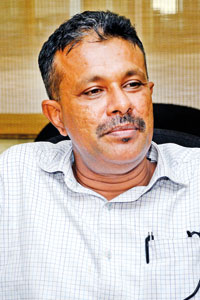
CEA Assistant Director Nishantha Dharmasiri
CEA Assistant Directors Nadeeka Niroshani and Nishantha Dharmasiri said a system to charge consumers for polythene bags at stores and supermarkets is to be implemented to reduce the use of polythene. The system was implemented before, but it was made mandatory to wrap the goods in packaging of some sort, but they had not specified the use of polythene bags. However, due to some form of miscommunication, polythene bags became the norm,” they said.
“Following a decision of the Supreme Court, consumers will be charged for polythene bags. The price is yet to be decided, and we are making a set of guidelines to be followed by sellers as they can misuse this to charge extra from the consumer,” Mr. Jayasinghe said.
“The other issue is lunch sheets,” said Mr. Dharmasiri. “With the ban on lunch sheets in 2016, the biodegradable lunch sheet was introduced. However, lunch sheets were revealed to only consist of 20% biodegradable materials as manufacturers mixed ingredients, and we did not have testing facilities at the time. We will completely ban all poly lunch sheets within the next year.
Pix by Priyanka Samaraweera
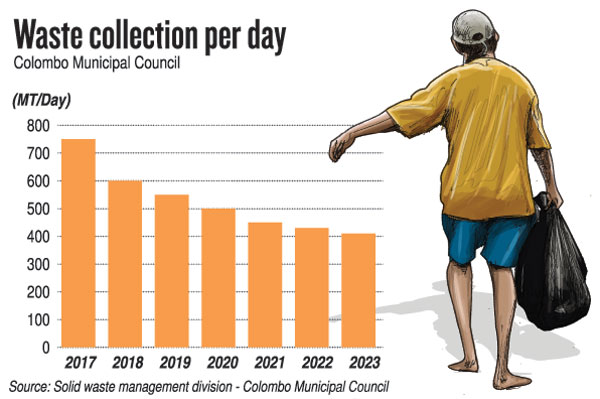
Waste management recognisedThe solid waste management division of the Colombo Municipal Council won the Urban Planning Award at the second “CityNet-ESCAP SDG City Awards” of the United Nations Economic and Social Commission for Asia and the Pacific.The website of the organisers says the 2023 contest challenged cities and stakeholding organisations to submit case studies related to the four themes of the 8th Asia Pacific Urban Forum, organised by ESCAP with support from CityNet in Suwon, South Korea, from October 23–25. Cities competed on their innovative urban planning policies, their climate programmes, the inclusiveness of their digital transformation strategies, and creative solutions for improving urban financing.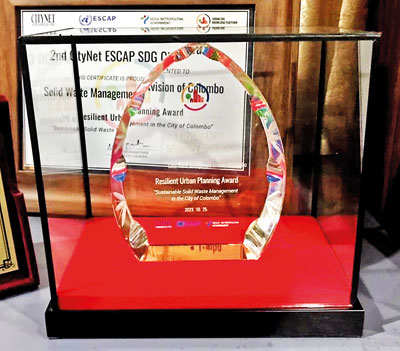 Below are some extracts from the case study submitted by the CMC, covering seven of the 17 Sustainable Development Goals.
The award was presented on October 25, 2023 at the Suwon Convention Center in South Korea. | |
The best way to say that you found the home of your dreams is by finding it on Hitad.lk. We have listings for apartments for sale or rent in Sri Lanka, no matter what locale you're looking for! Whether you live in Colombo, Galle, Kandy, Matara, Jaffna and more - we've got them all!

